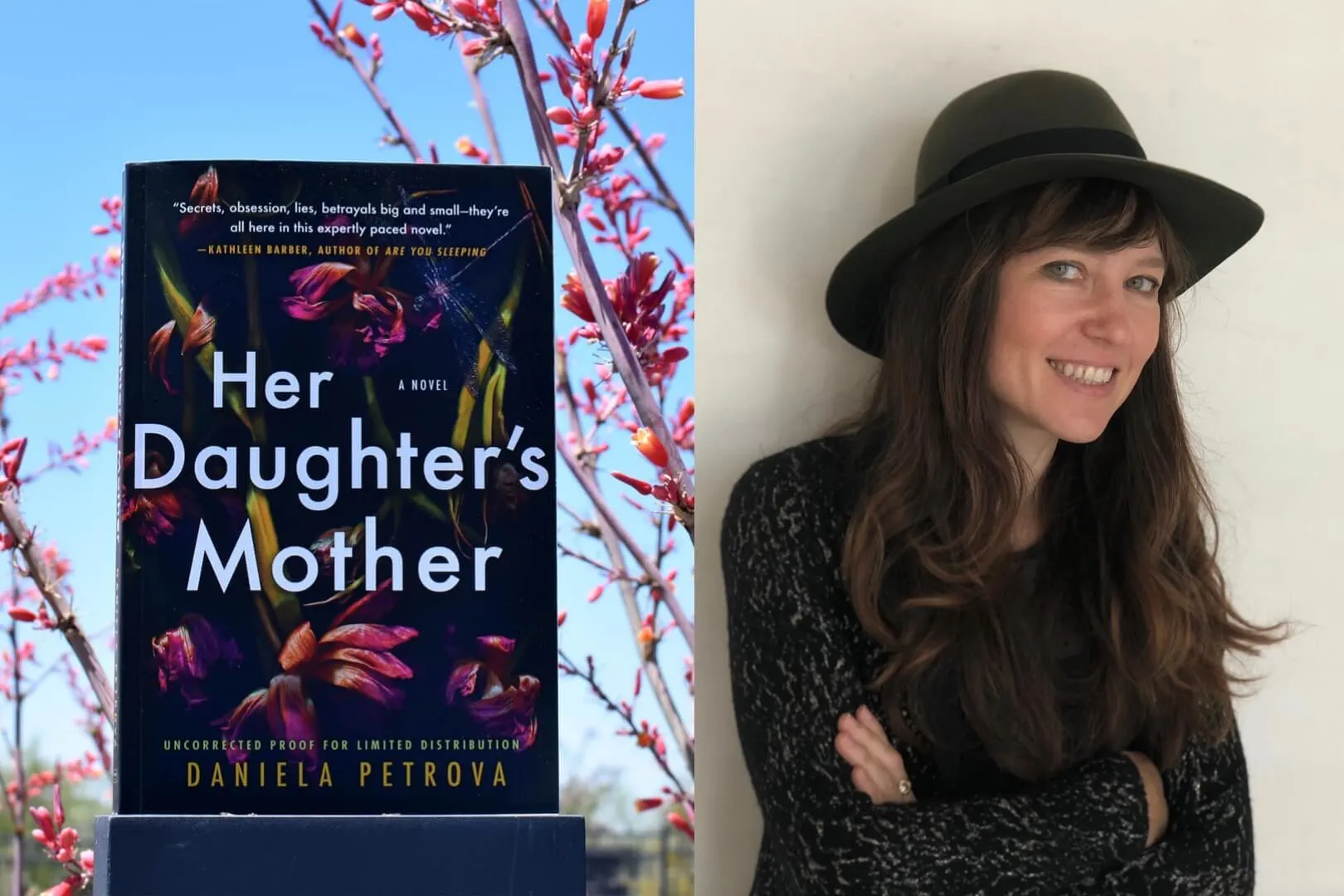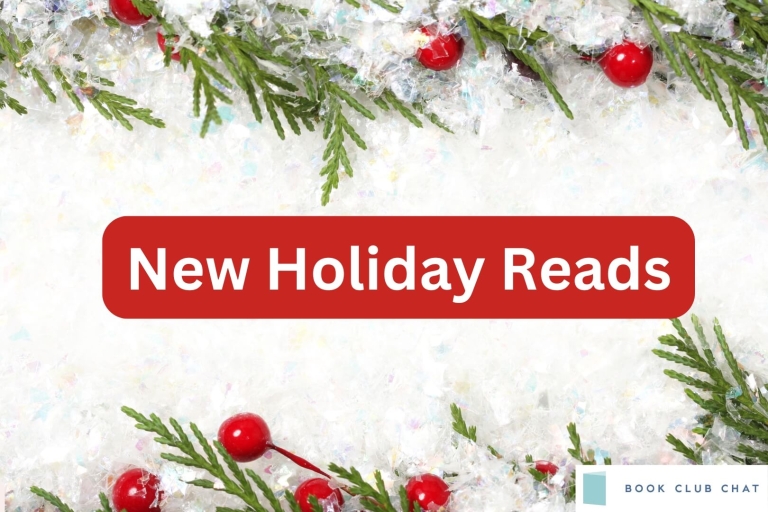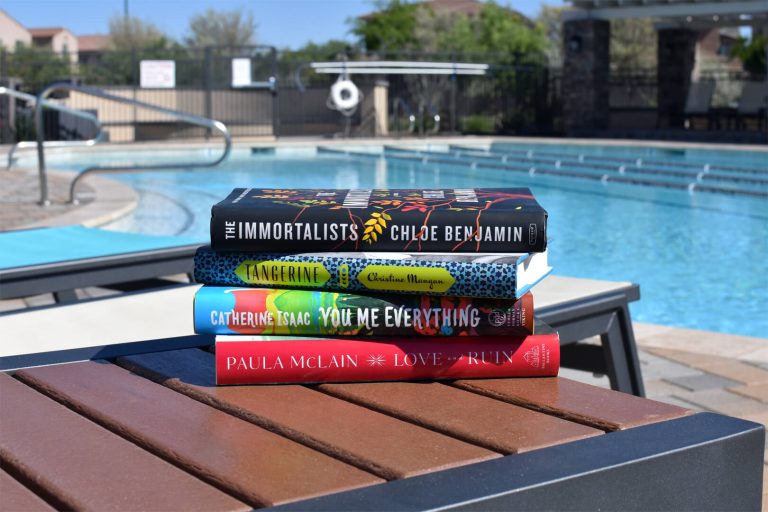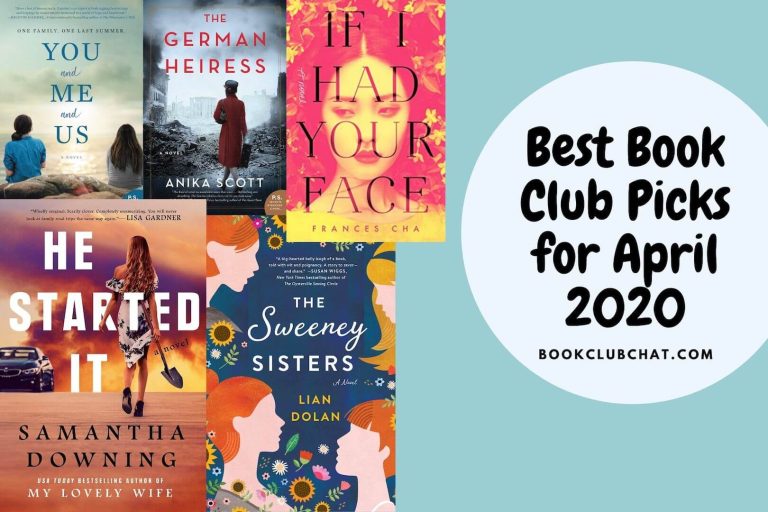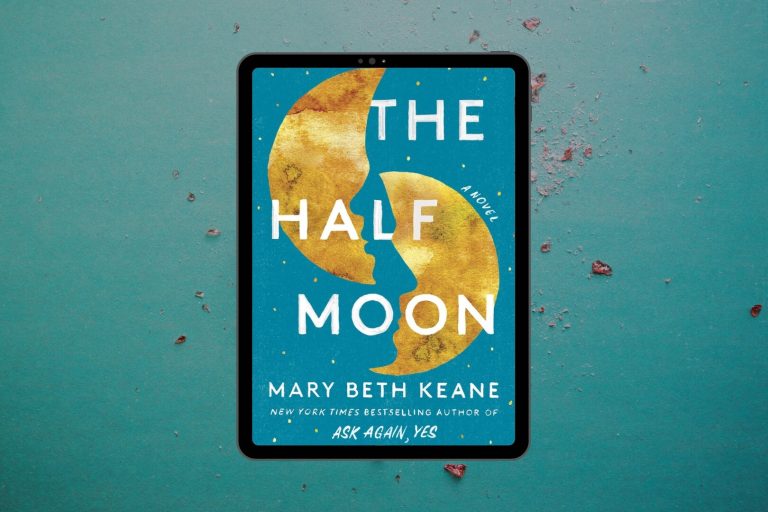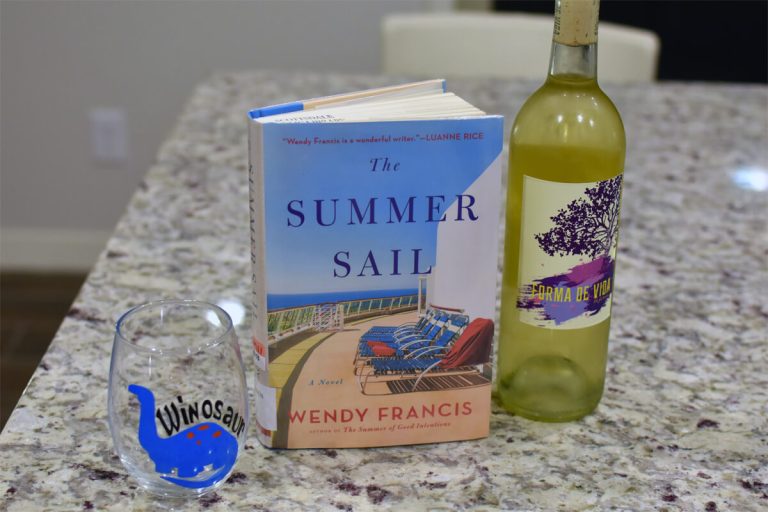Daniela Petrova is the author of Her Daughter’s Mother, a page-turner that is full of depth and intrigue. Let’s get to know her!
Daniela Petrova grew up behind the Iron Curtain in Sofia, Bulgaria. She came to the U.S. in her early twenties and earned a BA in Philosophy from Columbia University and an MA in Counseling for Mental Health and Wellness from New York University. She is a recipient of an Artist Fellowship in Writing from the Massachusetts Cultural Council.
Her stories, poems and essays have appeared in many publications, including The New York Times, The Washington Post, Salon and Marie Claire. She lives and writes in New York City. Her Daughter’s Mother is her first novel (check out my review and discussion questions).
I caught up with Daniela to talk her favorite novels, writing a novel in a second language, the Bulgarian connection between the two main characters and much more!
What are some of your favorite novels?
I’ve had so many favorites over the years but some of my earliest, back as a teenager in Bulgaria, were Martin Eden by Jack London (the first book I stayed up all night reading), War and Peace (the first book that made me turn down a date so that I could stay home and read) and Crime and Punishment (the first protagonist I had a crush on—I had a thing about tormented guys). Later on, I read everything by Hemingway I could get my hands on in Bulgaria and then, when I moved to America, I reread him in English. Jane Austin, of course. I enjoy rereading all of her books. Most recently, I’ve loved the novels written by Tana French, Lisa Jewel, Megan Abbot and all of the women writers in the suspense space.
When did you know you wanted to become an author?
I started writing poems as a kid in Communist Bulgaria. I wrote my first because I’d forgotten I had an assignment to recite a poem at school. I didn’t remember about it until the night before, when I went to bed. So I made one up before I fell sleep. I had so much fun, I kept writing more. As I teenager, I started experimenting with short stories. I can’t pinpoint a specific moment when I knew I wanted to be an author. It’s something that’s been always with me—a forbidden dream that I had to squish down because it wasn’t a practical pursuit. I grew up in a poor, working class family in Sofia. As the only one to graduate from high school, I was expected to have a profession, to do something with my education so that I wouldn’t end up working on the conveyor line like my parents and grandparents. Coming to America seemed to only reduce my chances of becoming a writer.
Can you talk about what it’s like writing a novel in a second language?
I moved to the U.S. at the age of 22 barely speaking any English. While working as a cleaning lady and a nanny, I took ESL classes at the YMCA at night and checked out books I’d already read in Bulgarian from the local public library to help me learn English. All along, I kept writing. It’s pretty embarrassing, actually, when I look at some of those early attempts at writing. What was I thinking?
But 24 years later, I cannot imagine writing in Bulgarian. I’ve been reading, writing and thinking in English for so long that it’s become synonymous with my creative voice. It’s a bit like I feel about typing. I haven’t written longhand in ages, and when I sit down to write cards, I spend so much time crafting a mere three or four sentences. I’m much faster using a keyboard and sometimes I even feel like I can’t think without my fingers moving.
What inspired you to write Her Daughter’s Mother?
My ex-husband and I struggled with infertility for years, trying nearly everything to get pregnant. The premise of this book was born out of my own unsuccessful attempt to become a mother with the help of donor eggs. Unlike my protagonist, Lana, I didn’t get pregnant but as I was going through the cycle, I confronted a lot of the emotional issues that Lana deals with. This book became my baby and I couldn’t be happier as I watch it come to life in the hands of readers.
I want to highlight the Bulgarian connection between Lana and Katya, which is such a compelling aspect of the story. Can you talk about how this connection provides an instant bond they share?
As an immigrant, I’d felt a special connection with many other immigrants. The first friends I made in New York more than 20 years ago were two German girls I worked with. And while most of my friends today are American, some of my best friends over the years have been a Philippina, Estonian, Saudi, Mexican, Romanian, Turkish, and of course many Bulgarians. Our experiences might be very different, but we connect in one aspect that’s pretty intrinsic to the life of immigrants—feeling foreign. The intimacy created by a shared experience can be very powerful. At a party a few years ago, I met a woman who was also from the Eastern Bloc and who had watched the same Czech show, Arabella, I grew up with in Bulgaria, and we both squealed with joy at this discovery. Lana and Katya are similarly united by their Bulgarian heritage. But there is an additional thread that weaves them together—the baby Lana is carrying will inherit Katya’s genes. This is a unique connection made possible only by advanced fertility treatments.
A big component of the novel is the different journeys to motherhood. Can you talk about why you decided to focus on the egg donor experience in this novel?
The idea of using the eggs of a younger woman to conceive can be emotionally-charged. It can feel like your very womanhood is negated. On a deep primal level, you feel like damaged goods. When my ex-husband and I scrolled through profiles of young, beautiful women on the donor egg agency’s website, we joked that it was as if we were choosing a girl for a threesome. But to me it also felt like we were looking for my replacement—a newer, better model. It’s not much of a stretch to think, “He can just make a baby with her. He doesn’t need me.” I didn’t get pregnant but thought that this whole experience could be ripe with conflicts perfect to explore in a novel.
Can you give a sneak peek into your next novel?
My next novel is also domestic suspense and draws on my experience as a young immigrant in New York in the 1990s before cellphones and social media.
What are you currently reading and what’s on your TBR (to be read) list?
I haven’t had any time to read these days but that hasn’t stopped me from buying books and my TBR stack is growing out of control. The other day I stopped at my local bookstore, The Mysterious Bookshop, and picked up My Sister, the Serial Killer. I couldn’t help myself and cracked it open just to read the first page but had a hard time stopping. Luckily, it’s a book you have to savor every sentence because I can only afford a few minutes of reading here and there. My TBR is full of other 2019 debut authors and I can’t wait to have reading time again so that I can dive in.
Thanks to Daniela for participating in the Q&A! You can order Her Daughter’s Mother on Amazon here.
